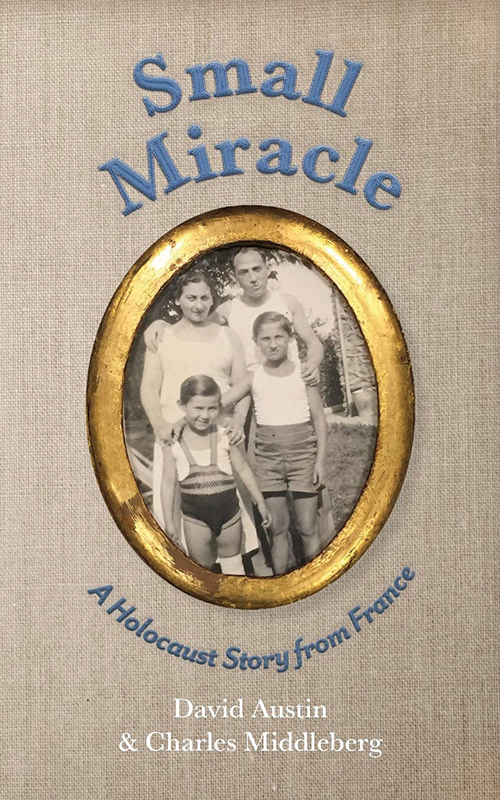
Small Miracle: A Holocaust Story from France
Reviewed by Anna Carolyn McCormally
December 1, 2020
By David Austin and Charles Middleberg. Fernwood Press, 2020. 184 pages. $16/paperback. Recommended for ages 10–15.
Small Miracle: A Holocaust Story from France is a story about the small ways we humans can affect one another and about how the choices we make to help or harm one another can have big effects. Author David Austin was inspired after hearing Charles Middleberg speak to a class of seventh graders about his experience of living through the Holocaust. The resulting novel is both a window—a glimpse into one young Jewish boy’s experience living through World War II after his parents were taken away by the Nazis—and a mirror, asking the reader to reflect on the ways, big and small, that they stand against the manifestations of hatred we see in the United States and the world.
Written in simple and intimate verse, Small Miracle does what the subtitle says it will do: it tells a Holocaust story: one story, reminding us that there is no single story of the Holocaust. The voice has a young child’s plain, honest observation—a simple account of enormous horrors. The narrator, young Charles, perseveres through the loss of his parents and through violence and hatred, thanks to the acts of people around him who take risks to protect him: acts he calls “small miracles.”
The facts of these small acts (warning your neighbors so they can escape when the Nazis come to search the building; giving a child a new identity so he’s not discovered by the police) seem obvious and easy to those of us who want to believe we would always do the right thing. But history tells us many people who want to do the right thing have not been capable of doing so. The world is full of people who don’t act with hatred but, nevertheless, do not act against it. Small Miracle’s most affecting moment comes at the end, when Charles, as an adult, visits Auschwitz for the first time and realizes that a person, a human being, made the decision to kill his mother and countless other people.
This is a quiet book. It’s a different story from those found in other books about the Holocaust, such as Number the Stars by Lois Lowry or The Diary of Anne Frank, but its singularity is what is important about it. A quote from Elie Wiesel opens the book: “When you listen to a witness, you become a witness.” Once readers have read Charles’s story, we, too, are witnesses.
Anna Carolyn McCormally is a member of Herndon (Va.) Meeting. She lives in Washington, D.C., with her partner and has an MFA in fiction from the University of Maryland, College Park.


